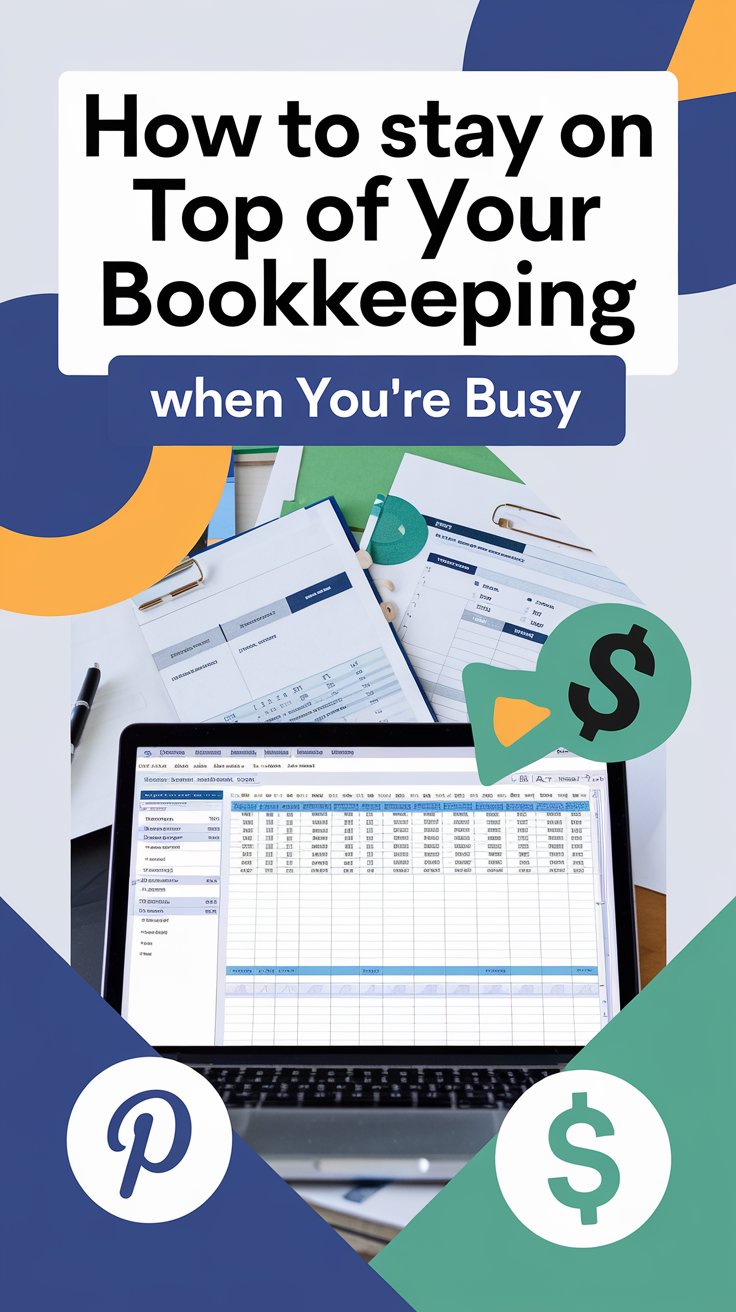Being a small business owner often means juggling multiple roles—salesperson, marketer, customer service rep, and more. With so many responsibilities, bookkeeping can easily slip to the bottom of your to-do list. However, neglecting your financial records can lead to costly errors, missed deductions, and stress when tax season rolls around. Here’s how to stay on top of your bookkeeping, even when your schedule is packed.
Break It Down into Manageable Tasks
Instead of letting receipts and transactions pile up, tackle your bookkeeping in small, regular increments. Schedule 15–30 minutes each day or a couple of times a week to review expenses, reconcile accounts, and categorize transactions. By handling tasks in bite-sized chunks, you’ll avoid feeling overwhelmed and prevent a backlog of unrecorded data.
Why It Works:
- Prevents the end-of-month scramble.
- Keeps your records consistently accurate.
- Helps you catch errors early.
Automate Where Possible
Technology can save you significant time and effort. Tools like QuickBooks, Xero, or Wave allow you to connect your bank accounts and credit cards so that transactions import automatically. You can also set up recurring invoices, payment reminders, and expense categorization rules.
Benefits of Automation:
- Reduces manual data entry.
- Minimizes human error.
- Frees up your time for higher-level tasks.
Keep Personal and Business Finances Separate
One of the biggest mistakes busy entrepreneurs make is mixing personal and business expenses. This confusion not only complicates your records but can also lead to missed deductions and inaccurate financial statements. Open a dedicated business checking account and credit card to ensure every expense is properly tracked.
Why It Matters:
- Simplifies your bookkeeping process.
- Makes it easier to see exactly where your business stands financially.
- Reduces the risk of errors during tax filing.
Schedule a “Money Date”
Setting aside a specific time each week or month for bookkeeping tasks can be a game-changer. Treat it like an important meeting—no interruptions allowed. During this “money date,” review your transactions, reconcile bank statements, and update any outstanding invoices or bills.
Tips for a Productive Money Date:
- Make it a routine, like every Friday afternoon or the first Monday of the month.
- Have all necessary documents (receipts, bank statements) ready.
- Reward yourself afterward to make it something you look forward to.
Outsource When Needed
If you’re consistently swamped and find bookkeeping slipping through the cracks, it may be time to consider hiring a professional. Outsourcing to a bookkeeper can free up hours of your week, reduce stress, and ensure your records are always accurate.
Key Advantages:
- Expertise in catching errors and maximizing deductions.
- Saves you time so you can focus on revenue-generating activities.
- Offers peace of mind knowing your finances are in order.
Keep Your Receipts Organized
It’s easy to misplace or forget about receipts when you’re constantly on the go. Use a mobile app like Expensify or a cloud storage system to snap photos of your receipts the moment you get them. Sort them into categories for easy retrieval later.
Why This Works:
- Ensures you don’t miss out on legitimate business expenses.
- Speeds up tax preparation.
- Reduces paper clutter and stress.
Plan Ahead for Tax Season
Last-minute scrambles during tax season can be a nightmare. Keep a separate folder or label in your bookkeeping software for any tax-related documents, and review your financial statements monthly to ensure everything is up to date. This proactive approach will make filing taxes much smoother.
Pro Tip:
- Regularly consult with a tax professional or bookkeeper to identify deductions and plan for upcoming liabilities.
Final Thoughts
Staying on top of your bookkeeping doesn’t have to be overwhelming, even when you’re juggling countless other tasks. By breaking it down into small chunks, automating what you can, and staying organized, you’ll keep your finances in check and set your business up for long-term success. If it’s still too much to handle, consider hiring a professional to ensure you’re always tax-ready and able to focus on what truly matters—growing your business.
